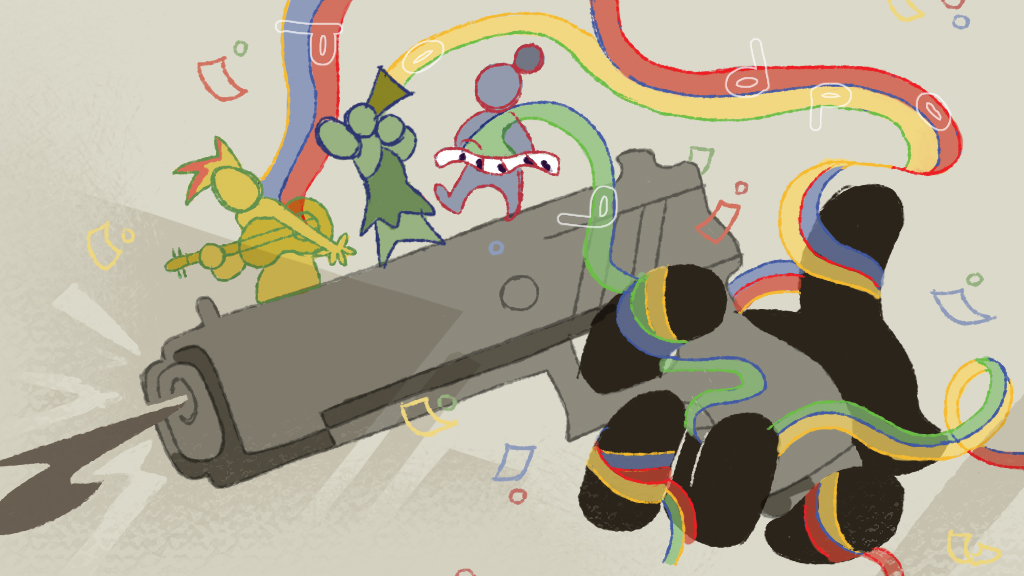Guitars Over Guns (GOG) is a non-profit organization based in Miami that aims to use music education as a tool for developing youth in otherwise underserved communities. They aim to enable youth to empower themselves through music.
Over the years, GOG has grown to be a powerful player in empowering youth They have an after-school program, five summer camps, an a capella group and a music studio open to students in Miami, alone.
The organization was originally founded in 2008 as a result of Chad Bernstein's Ph.D. dissertation. At the beginning, the organization was made up of just five mentors and 15 participating students at the University of Miami. Now, the organization serves over 1000 students across Chicago and Miami, with 85 mentors.
Part of this growth is attributable to partnerships with more schools than ever before, bringing the program to more students. The organization has since been recognized by the Obama Foundation and the My Brother’s Keeper Initiative as a community to watch, which acknowledges organizations that have made an impact in their communities.
Empowering the Youth
"We realize that students already have a voice, they just need to let themselves be heard."
Although GOG is nominally a music education program, those involved acknowledge that music is a tool being used to help youths develop in a few key ways.
According to Jono Delian, chief operating officer of GOG, “the single biggest factor of students living in a challenging environment is a stable relationship with a caring adult."
For many students, their mentor is the first adult in their life to consistently show interest and support for them. The mentors meet with students two days per week, with two hours per session. During this time, students work on three different aims: social/emotional development, academic check-ins and the music program itself.
Social/emotional development aims to foster soft skills in students that they otherwise may not have learned. This includes skills such as teamwork, leadership and communication. Mentors implement a specific curriculum designed to engage students in this type of learning.
Walker Mosley, regional director of GOG in Miami, said, “[For the first time] instead of getting their report card and throwing it out, they bring it to their mentor to have a conversation."
This is the first time many students have had an adult hold them accountable to their academics, and these students show an improvement in their grades during their time in the program. Mentors work with students to develop academic goals as well as help students reach them.
The act of learning a musical instrument is itself a tool for life lessons. As opposed to most musical programs where students will go to lessons to learn about the basics of music, GOG emphasizes that students must be able to drive their own musical direction. Students do this by choosing what kind of music they want to learn, deciding what instrument they’ll use and potentially performing at the end of every semester.
“Many organizations characterize students by what they lack, and the need to give them a voice,” Delian stated. “We realize that students already have a voice; they just need to let themselves be heard.”
The organization isn’t aiming to create professional musicians; the goal is to create a meaningful relationship between mentor and students, to figure out what motivates students the most and then find opportunities for students based on those interests.
“Learning an instrument is a lot like the obstacles, challenges and opportunities we face through life,” said Mosley.
Challenges
There are several challenges with the implementation of such a widespread program, the most impactful of these challenges being limited access for some students and the need for funding.
Students in more remote regions of Miami County have limited public transportation options. For students who may not have access to a car or parents to pick them up, the school bus system is crucial to being able to access their education. However, some of the schools that GOG works with do not have a reliable after-school bus system; this limits these students' benefits from the program.
Funding is always difficult for non-profits because they depend on grants and donations from outside groups to function. This extends to GOG, not just because of their status as a non-profit, but also due to the cost associated with such a huge expansion over a relatively short period of time.
A specific difficulty affecting GOG is consistency in regards to the implementation of their program across participating schools. It is crucial to ensure that all students are receiving the same level of support from their mentors, while balancing the fact that different schools need to cater to their own student bodies. As Mosley mentioned, different genres of music are popular in different schools.
Future of the Organization
The organization aims to continue the growth it has seen in the past, but recognizes the importance of sustainability. GOG knows how important consistency is in making and protecting the relationships and progress of its students.
Recently, the organization has been funded by Florida Blue to create a mental health program that will pair psychology graduate students with school sites to offer counseling. Because of their backgrounds, many of these students are most in need of a counselor. However, due to stigma in their communities or lack of transportation, counseling is not available. The program will be slowly implemented in a few schools at first, tweaked and then expanded across more schools. The slow implementation ensures the program is effective and sustainable for the communities.
Delian stated, “Every effort is not worth anything if it is not sustainable for the communities we serve.''
GOG encourages people to become involved in community initiatives and spread awareness of the organization as it expands.








